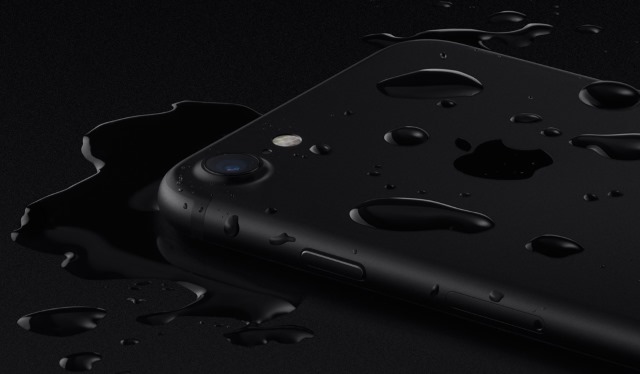Industry analysts question whether Apple has made mistakes with the iPhone 7

The event is over. The dust has settled. We now know everything there is to know about the iPhone 7 and iPhone 7 Plus. Despite all of the new features and cosmetic changes that Apple implemented in its latest smartphone, the focus after the announcement has been very much on the 'courageous' decision to ditch the headphone socket.
Some view this -- as Apple does -- as a move that took courage; others see it as a cynical marketing move that simply opens up yet another line of revenue. But this is not the only change to the iPhone 7 that has raised eyebrows. Many industry experts are questioning other decisions made by Apple. One such person is Richard Stiennon, Chief Strategy Officer at Blancco Technology Group.
Removing the 3.5mm jack leaves iPhone users with a few options, the first of which is to use the bundled EarPods. Of course you may want to stick with your tried and tested headset, in which case you can use the bundled adaptor -- fiddling, and something that will almost certainly get lost at some point. But there will also be a burgeoning market for AirPod alternatives -- giving people the chance to, hopefully, spend under $159. This is what Richard sees happening:
Apple has always adopted the philosophy of eliminating older features and adding newer, more sophisticated features. Remember how they led the innovation of smartphones without keypads? That innovation is critical to why the iPhone has been as popular and renowned by users, engineers and industry experts alike. Many already connect via Bluetooth to speakers and headsets -- with high quality at long ranges. This seems to be one of the reasons why Apple may be so confident in their decision to eliminate the headphone jack.
Over at the Guardian, Julia Carrie Wong also questions the sense in cord-free AirPods:
The beauty of the headphone cable is just like the beauty of a tampon string: it is there to help you keep track of a very important item, and help you fish it out of whatever nook and cranny it might have fallen into. Apple’s apparent blindness to this blindingly obvious problem is perplexing.
The Verge's Nilay Patel suggests the design could be AirPods' undoing:
They fit in my ears a little better than EarPods, but not by much -- I jumped up and down and shook my head a bit and they felt snug, but I wouldn't count on them staying in during any particularly dynamic activities.
Water resistance is something you would expect to be widely welcomed, and this is indeed the case. But it also introduces a possible problem: the cost of fixing things when they go wrong, says Richard.
Making the iPhone water-resistant will alleviate customer frustrations and possibly reduce the number of returned devices. But it will also be challenging because it means the device has more complex design needs and hence, would increase the complexity of repairs that would need to performed on them.
Very few people -- except perhaps those on a tighter budget -- will mourn the loss of the 16GB iPhones. Richard believes that the importance Apple has placed on photography this time around could have played an important role in the decision to drop the smaller capacity models.
The dual lens camera is the most significant benefit ... But because photo resolution will then increase, it’ll require more storage capacity on the phone. And this might be one reason why Apple decided to no longer offer the 16GB version on the iPhone 7.
Meanwhile, over at the Wall Street Journal, Geoffrey A Fowler says that the latest Apple smartphone sees the company playing catch-up rather than innovating:
Apple’s latest flagship phone delivers practical improvements on a tried-and-true design. These were long overdue. But Apple is only catching up to the competition, not flying past it.